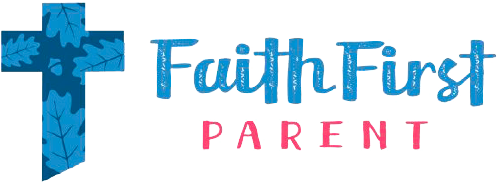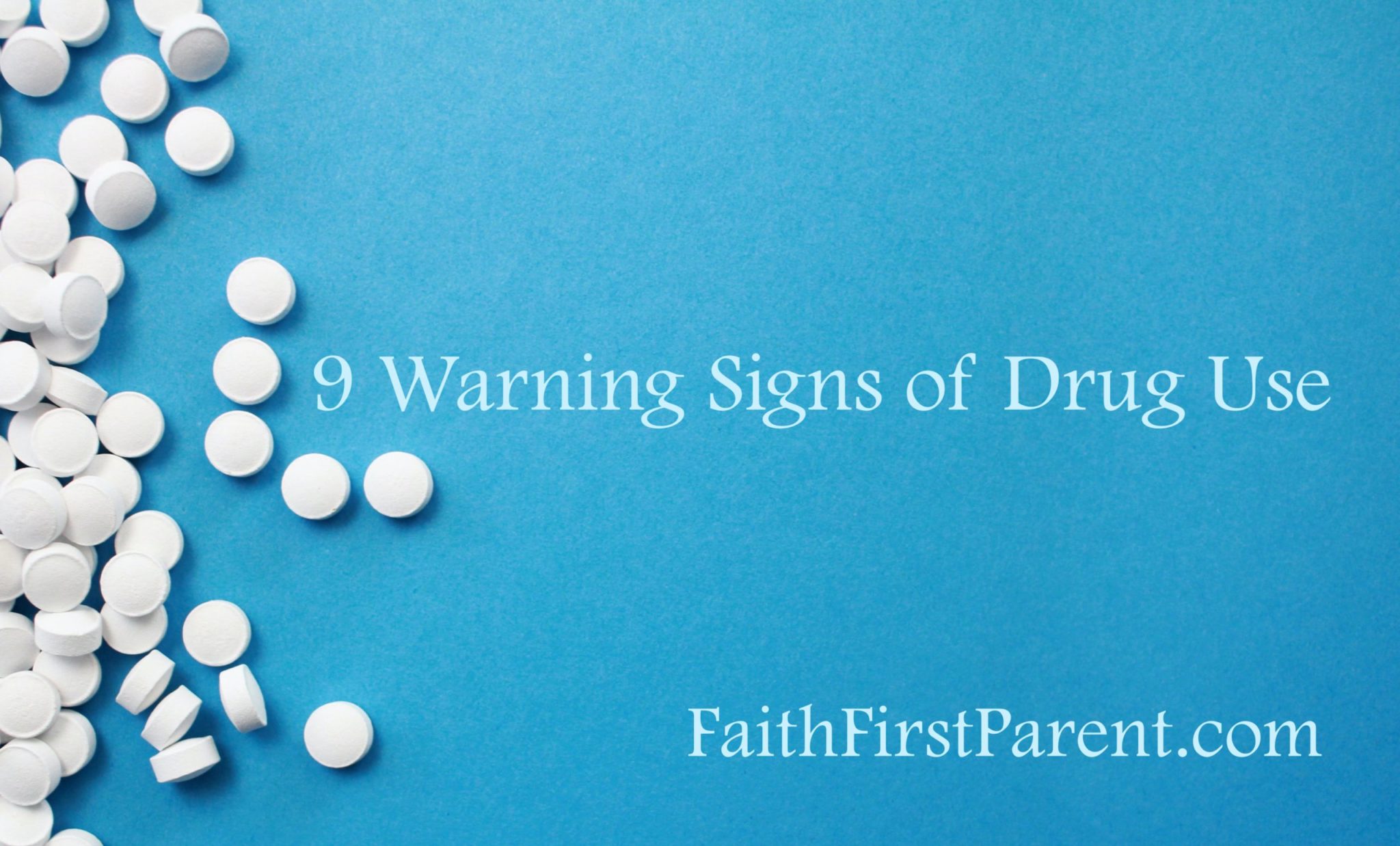9 Warning Signs of Drug Use
“My kids would never drink or use drugs.”
Yes, that’s what we all think, right? How many of us have taught our kids from little up not to smoke, drink, or take illicit drugs? Yet, alcohol and drug abuse is rampant in youth culture. The lure of drugs and alcohol can creep into any family.
“Kids will be kids. Every kid drinks beer or smokes pot. I just want my teenagers to be happy.”
Happiness is subjective. Raising our children to be holy and healthy is far more important than happiness. Drinking, smoking, and taking illicit drugs are illegal and harmful. Period. Not every kid drinks or smokes.
“What did I do wrong as a parent that my child would choose to use?”
While parents are responsible for raising children well, teenagers are accountable for their own choices. A lot of growing up comes from learning the hard way through mistakes. Just as we cannot take the credit for our child’s successes, we cannot bear the weight of their mistakes. (This is a hard lesson for every parent.)
There’s hope! Knowledge is power when dealing with kids and using. Here are nine warning signs of drug and alcohol abuse in tweens and teens to help you as a parent.
9 Warning Signs of Drug & Alcohol Abuse in Tweens & Teens
- Secrecy and deceit.
The cell phone, bedroom, and backpack become overly important and private. Kids who are using spend a lot of time alone, playing video games, watching movies, or in their bedroom. The illicit items are usually kept close. When kids do go out, they tend to spend time without disclosing who or where. The acquaintances they mention are sometimes new “friends”. Watch for lies. One lie covers and more need to be fabricated to keep the illusion. Stealing becomes a habit. Risky behaviors are more prevalent too: sex, speeding, theft, etc. - Love and hate.
Mood changes can be fast and extreme. The teen wants to be loved, on his terms. The eye-to-eye conversations become few and far between. Rather than taking responsibility for one’s actions and choices, others are blamed. Rude and profane language can become the norm for kids using drugs. Family values are often thrown to the wayside. - Poor personal hygiene and health.
The clothes, backpack, and car stink. Mints, gum, and mouthwash are prevalent cover bad breath and eye drops sooth red eyes. Air fresheners hide odors. Comments about wearing clean clothes are meet with anger. Frequent nosebleeds, nausea, excessive thirst, bloodshot eyes, depression, paranoia, headaches, and weight loss are common to kids who are using. - Broken curfews.
“Nothing good happened after midnight” is a true adage. Late nights are part of the party scene. Curfew doesn’t matter to kids who are using. Also, kids who drink and take illicit drugs disappear for hours at a time and choose not to elaborate on who they’ve been spending time with or where they’ve been. - Unusual eating and sleeping habits.
Family dinners are not as enticing to users. Being with the family is stressful. Snacks are a quick alternative to mealtime. The munchies set in after using too. - Always broke.
When the habit becomes established, the user needs more. Drugs and alcohol are typically expensive but not always. Prescription drugs are easily stolen and cash from Mom’s purse and Dad’s wallet too. - Change in family dynamics.
The stress is great on the siblings as they watch their parents and the brother or sister struggle. They deal with loyalty questions and a desire for normalcy. Over sensitivity, hyperactivity, irritability with family members is common in users. Everyone starts to feel as through they are walking on eggshells. - Withdrawal from activities and schoolwork.
Grades plummet. Classes, activities, and practices are skipped. Teachers, youth leaders, and coaches call. As the teen becomes a more frequent user, the probability of using at school, practice, and even at church increases. - Boundaries constantly tested.
“How far can I go with Dad to get my way? How far can I push Mom?” Even with firm boundaries for our children, they will step over the line. This is a normal part of child development. With drug and alcohol abuse, the rules challenged more frequently and to a greater degree.
Do these warning signs describe your teen? If you suspect a problem, step into it. Your child is getting sucked into a culture of selfishness and addiction and you have the power, with God’s help, to step into the situation with unconditional love and firm standards. Loving your child unconditionally does not mean accepting drug or alcohol use or hoping the problem takes care of itself. Deep love, the love that mimics the love of God, means doing what’s best for your child to be holy and healthy even if you’re hurt, frightened or embarrassed.
Thank God if your kid gets caught, and gets caught early. Get help for the whole family, not just the user. Share the struggle with others. The Lord will bless you with friends to love you and your child. Lean into your faith in God, for only He can hold you and your child up through the difficulties of addictive behaviors. Most of all, pray every day with your child if possible and for your child without ceasing.
Rejoice always, pray without ceasing, give thanks in all circumstances;
for this is the will of God in Christ Jesus for you.
1 Thessalonians 5:16-18 ESV
Special Note: The Center for Disease Control and the U.S. Department of Health and Human Services: Office of Adolescent Health offer facts to help illuminate the problem. Click on the links at the end of the post for more information.
- Although drinking by persons under the age of 21 is illegal; people aged 12 to 20 years drink 11% of all alcohol consumed in the United States. More than 90% of this alcohol is consumed in the form of binge drinks.
• On average, underage drinkers consume more drinks per drinking occasion than adult drinkers.1
• By the twelfth grade, about half of adolescents have abused an illicit drug at least once. The most commonly used drug is marijuana but adolescents can find many abused substances, such as prescription medications, glues, and aerosols, in the home.2
- Center for Disease Control “Fact Sheets – Underage Drinking”
- U.S. Department of Health and Human Services Office of Adolescent Health “Illicit and Non-illicit Drug Use”
© 2022 Becky Danielson. All rights reserved.
If this post is encouraging, please take a moment to subscribe to the Faith First Parent e-newsletter or share the post with a friend.
Related Posts

